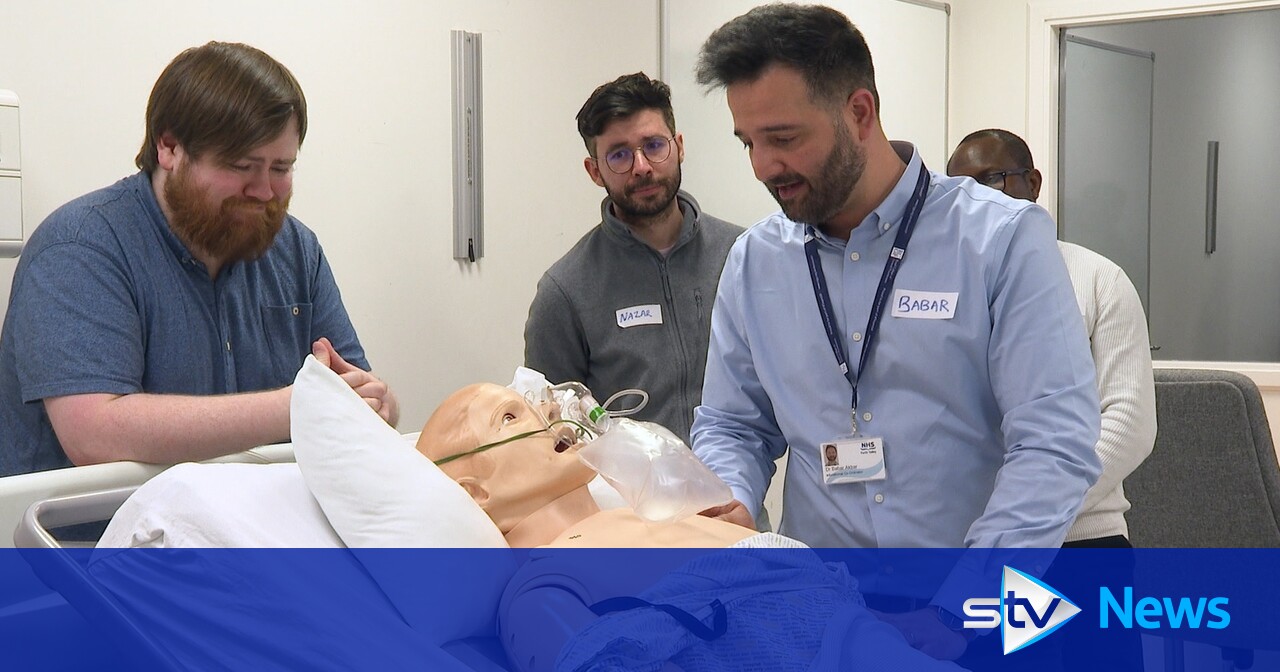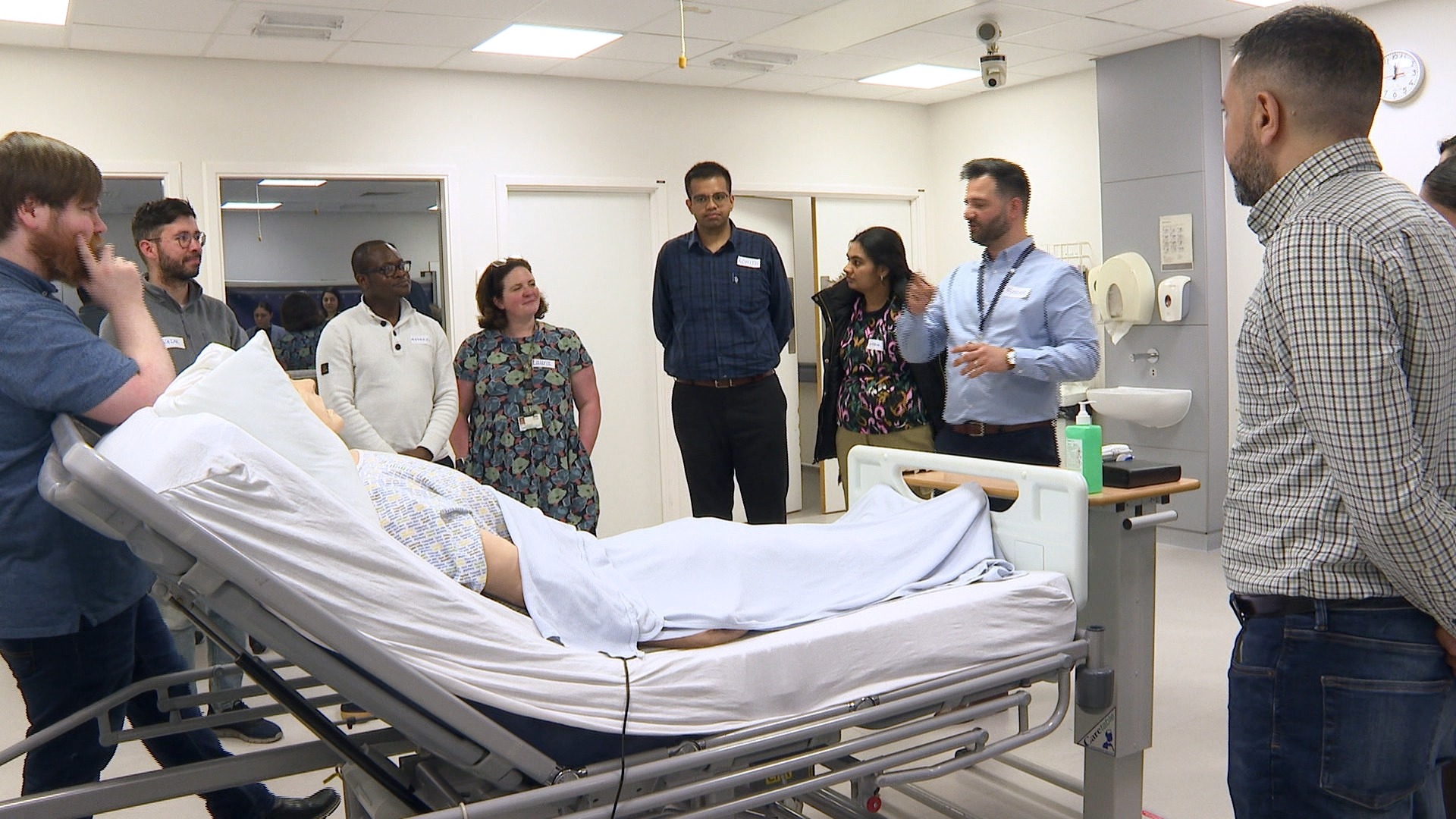Jobs
Refugee doctors want to ‘give back’ and boost NHS workforce

A training programme to help refugee doctors to work in the NHS is celebrating its latest number of recruits.
Medics from Iran, Syria, Libya, India, Pakistan and Ukraine have all signed on for the sessions which use high end simulations and current NHS staff to support transitions into hospitals and clinics.
The medical team involved in the project say there is a huge ‘untapped resource’ of highly skilled people in Scotland who could boost the workforce and cut patient waiting times.
Dr Babar Akbar has been a driving force within the partnership involving NHS Forth Valley and The Bridges Programmes.
“So, we realised quite rightly that we have got a treasure trove of these professionals sat in this country,” said Dr Akbar. “Refugee doctors who are needing to get their qualifications recognised and then trained up so they can join us in the NHS.
“We’ve taken the lead and said let’s support these guys to come and join our workforce because that’s what the NHS needs.”
According to the British Medical Association, Scotland’s GP workforce has fallen by nearly 200 full time doctors since 2013.
It costs the NHS about £290,000 to train a doctor from scratch – but it only costs a fraction of this – around £25,000 – to retrain a refugee doctor through the programme Dr Akbar helps run.
“It’s very from the heart but I see myself in a lot of them,” he said. “I am very much a foreign doctor who is now a very proud Scot and I landed on these shores 14 years ago and I’ve made this country my own.
“The NHS has given me a life and I’ve given whatever I can to the NHS and I love the NHS for that and I can see every participant that we put through this course doing the exact same thing. Because they want to contribute to society. “
“The NHS has given me a life and I’ve given whatever I can to the NHS and I love the NHS for that.”
Dr Babar Akbar
In their home country many of these doctors were emergency medics, neurosurgeons and gynaecologists.
Once they arrive in Scotland, they are often forced to take any job they can while they battle through the system to try and get their medical licence to work in the UK.
Those able to complete the training with the SIM centre say the support has helped them during what can be a long transition.
Dr Andrii Revura took part in the programme after he fled the conflict in Ukraine.
“I completed my training in Ukraine in general surgery and then I went on to complete another sub speciality in surgical oncology,” said Dr Revura.
“I would say more could be done in creating the awareness that such organisations exist, that such help and support exists.”

Awareness of the barriers medics like Dr Revura face and support to overcome them could be one answer in easing the strain on our NHS.
“We often find that our refugee doctors are so keen to contribute they want to give back to their communities,” said Karen McIntyre from The Bridges Programmes. “It just seems that it’s a win, win, win.”
“We often find that our refugee doctors are so keen to contribute they want to give back to their communities so it just seems that it’s a win, win, win.”
Karen McIntyre The Bridges Programmes
The programme for the refugee doctors is run at the Scottish Centre for Simulation at Forth Valley Royal Hospital in Larbert.
It provides a safe place for medics to practice on ‘robot patients’ or mannequins which can simulate a variety of conditions to give medics ground-breaking training.
This realistic setting helps them adjust to NHS life before they re-qualify and treat patients.
“It basically helps prepare them for clinical practice,” said Dr Julie Mardon, Clinical Director of the Scottish Centre for Simulation.
“It’s been fantastic, we’ve learned from them and they’ve learned from what the centre can offer as well…it’s an amazing privilege and seeing their transformation is just fantastic.”
“Really I see the potential for anyone undergoing a transition,” added Dr Mardon. “Whether it being off for a period through sickness or for maternity leave so some of the lessons that we’ve learned here can be translated into a wider picture for our workforce.”
For Dr Babar Akbar, it’s a win for doctors and for patients.
“It fills me with absolute joy, almost like a father, where I see these people who will work with me in the years to come,” he said.
“People who will look after my mum, look after my wee one and together we will make the country better and for us to be able to do that I think is nothing short of a miracle.”
Follow STV News on WhatsApp
Scan the QR code on your mobile device for all the latest news from around the country











